A Five Star Malady
What better treat for a president-elect waiting to move into the White House than to stay in one of the swankiest hotels in the capital? Well, as it turns out, James Buchanan would have done better to have found less plush accomodations in the spring of 1857. He and hundreds of others fell victim to a mysterious ailment after staying at the luxurious National Hotel.
This sickness, because it came at the end of a harsh campaign against the victorious Buchanan, was thought by many to arise from a poison. Fingers were pointed at various political opponents; even the Spanish government in Cuba was blamed. The illness that Buchanan and the others suffered did, according to contemporary observers, bore a strong likeness to arsenic poisoning. The symptoms were reportedly varied and included diarrhea, vomiting, and abdominal cramps. Some patients suffered fever and loss of appetite. The ill could seek relief through charcoal, magnesia, and a diet high in starch and low in meats.
Some were worried that it wasn’t poison, but instead a new sort of plague. Local merchants, fearing a loss of trade, appointed a committee to discern the cause of the National Hotel Disease. The committee found that the sicknesses were “strictly confined to the block upon which [the National Hotel] stands”, and drew from this and the testimony of medical witnesses that the sickness was “not of a contagious character.” They also reported that, other than the isolated outbreak, the city was “remarkably healthy” and suffered no other serious outbreaks. The committee was very sure that the National Hotel Disease was an isolated event but had little idea of what was actually causing it. (I guess that was supposed to be reassuring?)
Fortunately, the city's medical community was on the case. Doctors were convinced that the illness has nothing to do with arsenic or any other corrosive poison. They blamed the whole thing on a sort of malaria. In those times, malaria was thought to be caused by miasma, or literally “bad air.” The Evening Star explained it like this on October 6, 1857.
Miasma is an emanation from decaying vegetation. Malaria is bad air whatever may be its source. All impure air is malaria. Diseases which, from the violence of their action, are scarcely indistinguishable from the effects of swallowing corrosive poison, as witness the National Hotel Disease.
Experts of the time were thoroughly convinced that the disease was contracted this way, calling attention to “the fact that persons caught the disease… while neither drinking or eating a mouthful” in the hotel. According to them, “simply breathing the atmosphere” in the hotel was enough to fall ill. The Academy of Medicine of the city held a special session just to declare that the National Hotel Disease originated from “putrid exhalations.”
The infectious vapors were thought to have perhaps arisen from “innumerable rat carcasses undergoing decomposition behind partitions in between floors in the house”-- which is horrifying enough without even considering the endemic. The other possibility was the fancy new water closet that the National Hotel boasted as part of its luxurious accommodations. Though the water closet was the newest thing in its day, it was primitive by our standards and it would have provided an easy route for bacteria to make it into people’s systems.
Waste was a difficult subject in 19th century Washington. At the beginning of the century, there was zero waste disposal at all; refuse and privy contents were thrown about any which-where. Over the course of the century, health reformers campaigned for progress in city sanitation. But after the unpleasantness at the National Hotel, the city Board of Health declared “direct connections” between residences and sewers to be dangerous. It wasn’t until twenty years later that people would widely begin trusting indoor plumbing again.
Modern scholars think the National Hotel Disease might have been dysentery or some similar illness caused by contaminated food or water. Whatever the cause, hundreds of people fell victim to the mysterious ailment. The good news is that most of them -- including President Buchanan -- got better, though about three dozen did die. Eventually, the hype around the sickness calmed down, and the National Hotel renovated to have better system of drainage and ventilation.
If you’d like to visit the place where this famous hotel used to stand, head over to 555 NW Pennsylvania Ave, better known now as the Newseum. Just to be on the safe side, you might want to bring along some Purell.
Sources:
Crane, Brian D. “Filth, Garbage, and Rubbish: Refuse Disposal, Sanitary reform, and Nineteenth-Century yard Deposits in Washington, D.C.” Historical Archeology Vol 34.1 (2000). Web. 2013.
“The Mysterious National Hotel Disease.” History, Art & Archives: United States House of Representatives. The Office of the Historian and The Clerk of the House’s Office of Art and Archives. Web. 2013.
Rosenberger, Homer T. “Harriet Lane, First Lady: Hostess Extraordinary in Difficult Times.” Records of the Columbia Historical Society, Washington D.C. Vol 66/68. (1966/1968). Web. 2013.
Evening star. (Washington, D.C.), 20 March 1857. Chronicling America: Historic American Newspapers. Lib. of Congress. <http://chroniclingamerica.loc.gov/lccn/sn83045462/1857-03-20/ed-1/seq-3/>
Evening star. (Washington, D.C.), 04 May 1857. Chronicling America: Historic American Newspapers. Lib. of Congress. <http://chroniclingamerica.loc.gov/lccn/sn83045462/1857-05-04/ed-1/seq-2/>
Evening star. (Washington, D.C.), 07 May 1857. Chronicling America: Historic American Newspapers. Lib. of Congress. <http://chroniclingamerica.loc.gov/lccn/sn83045462/1857-05-07/ed-1/seq-3/>
Evening star. (Washington, D.C.), 16 June 1857. Chronicling America: Historic American Newspapers. Lib. of Congress. <http://chroniclingamerica.loc.gov/lccn/sn83045462/1857-06-16/ed-1/seq-1/>
Evening star. (Washington, D.C.), 21 July 1858. Chronicling America: Historic American Newspapers. Lib. of Congress. <http://chroniclingamerica.loc.gov/lccn/sn83045462/1858-07-21/ed-1/seq-2/>
Evening star. (Washington, D.C.), 06 Oct. 1857. Chronicling America: Historic American Newspapers. Lib. of Congress. <http://chroniclingamerica.loc.gov/lccn/sn83045462/1857-10-06/ed-1/seq-1/>


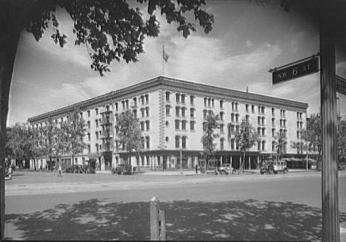
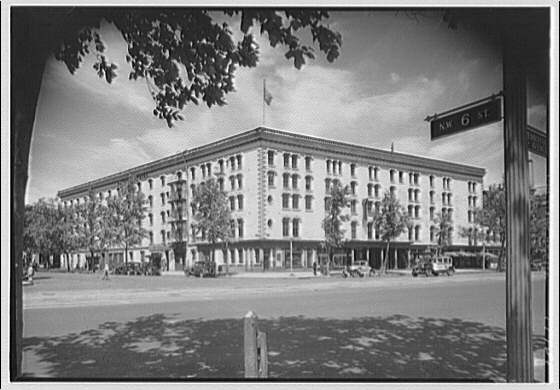
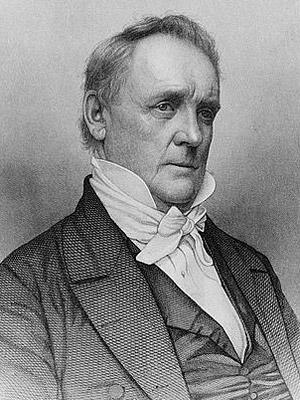
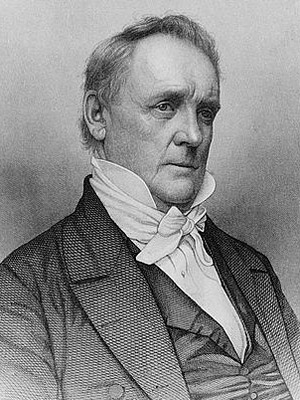
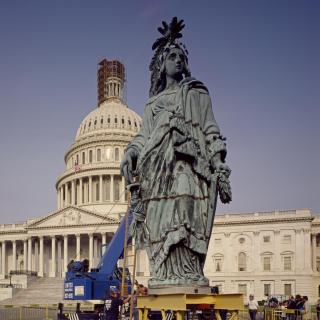
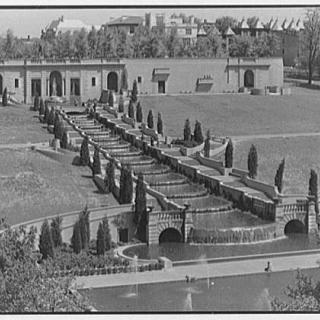
![Sketch of the mythical fuan by Pearson Scott Foresman. [Source: Wikipedia]](/sites/default/files/styles/crop_320x320/public/2023-10/Goatman_Wikipedia_Faun_2_%28PSF%29.png?h=64a074ff&itok=C9Qh-PE1)












